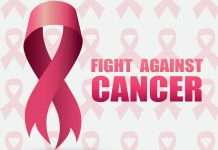(Pharm Nelson Okwonna)
A good examination of the Hippocratic Oath will reveal the depth of understanding from which the health care professions have developed. It shows theintentionality of the practitioners, their communal spirit and the wholesome mind with which they approached the sacred art, our sacred art.
It is in the light of the above and with particular emphasis on the individuality of this oath that we would consider if we have done the best for our patients in these modern times.
Have We Done No Harm?
In the management of cancer, diabetes, high blood pressure and other chronic diseases, can it really be said that we have done no harm to our patients? This discourse will raise mostly questions and may not succeed at presenting a particular set of answers.
At the just concluded Pharmanews workshop on “Alternative Medicine Management Approachesfor Cancer and Other Chronic Diseases”, these questions and many more came to bear. Have chemotherapy and radiotherapy really brought sustainable good to our cancer patients? Can we satisfactorily walk away, convinced that we have done the best for them? Have we factored all the causes that could predispose our patients to ill-health in the management of diseases? Is our approach more disease-focused than health-focused? Do the answers to these questions matter?
Let us take hypertension, for example. 95 percent of the cases are idiopathic – of no known cause. Have we focused on addressing this position of disadvantage, as much as we have focused on bringing the pressure down, by every means possible?
The story was told of a man who went fishing. As he got to the riverside, he found another fisherman who was doing something quite intriguing – he was throwing back the big fishes into the water and keeping the small ones. Puzzled, the man had to entreatthe fisherman to explain his action. The fisherman smiled and explained that he had an 8-inchfrying pan, and therefore couldn’t keep the big fishes.
Our 8-inch frying pan
In 2006, T. Colin Campbell released a book titled “The China Study”. The book was based on a huge epidemiologic study of diet and health done in China. The book’s major thesis is that we could prevent or cure most diseases (heart disease, cancer, diabetes, autoimmune diseases, bone, kidney, eye and other diseases) by eating a whole-food plant-based diet, drastically reducing our protein intake, and avoiding meat and dairy products entirely.The project was done in collaboration with Oxford University, and did give very important support for plant-based foods.
Not everyone agrees with Colin Campbell and this article is not to take a position on the matter.However, the aim is to demonstrate a factual position that what we eat really does matter. In his book, “The Outliers”, Malcolm Gladwell began by telling us a story of an immigrant community in the United States of America, which seemed not to ever have certain cardiovascular incidents. The medical state of this community baffled medical experts who couldnot find a single explanation for its uniqueness.After much fuss, someone arrived at an obvious answer – the community itself was the reason. The communal life, faith and manner of the members of the community accounted for their health status.
Today, we know that we do not have the best of diets or environmentsin Nigeria (two factors that play critical roles in determining our health status); hence, the increase in chronic diseases like cancer and diabetes is not particularly surprising. A recent report by the Business Monitor International stated that the growing incidence of chronic diseases and the purchasing power of middle class Nigerians would account for the projected increase in the pharmaceutical business in Nigeria. The point to note from the report is that the bad news of increasing chronic disease rates is relatively predictable and the aim of this article is to ask if we arenot seeking for solutions with an 8-inch frying pan.
What works?
In his opening remarks at the Pharmanews workshop earlier mentioned, the lead resource person, Dr Ladeinde, began by saying that he was not an advocate of traditional, alternative or orthodox medicine but rather of what works. I quite agree; it is our personal responsibility, as enshrined in the Hippocratic Oath, to find what works best for our patients and not necessarily what makes the most money. As it stands today, a hypertensive patient or a diabetic patient is more of an economic index for revenue generation than a problem that must be addressed. I seek not to trivialise an important issue or desecrate the hallowed altars of our noble practice but to rather ask deep, probing and perhaps disturbing questions – is our current approach working well enough? Can it meet our needs in the next ten years?
One recurring theme that undergirded the message by Dr Ladeinde is that, to help the patient, we must find ways to increase the ability of his body to fight disease; we must channel all our resources in aiding the most exquisite and resilient force on earth – nature. It is true that humans do not die; they kill themselves.What works is that which gives the human body increased ability to heal itself. To find it, in many cases, we may have to first change our frying pans.











